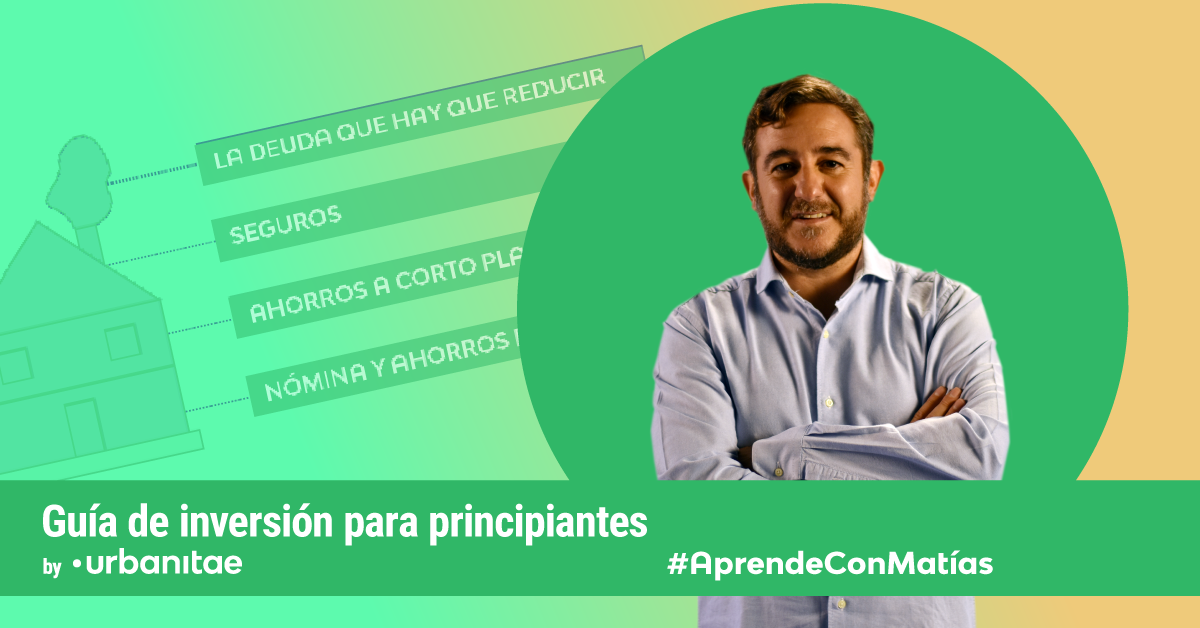


It’s always a good time to start investing. However, before taking that step, it’s essential to ensure you have a solid financial foundation. Saving before investing not only provides financial security but also maximizes the potential of your investments. In this first article of our guide, we explain why the correct order of steps is: first, saving; second, investing.
Imagine your personal finances as a house. The most important thing is that this house has a solid foundation capable of withstanding economic storms.
The problem with unforeseen events is that you never know when they will occur… That’s why the first rule is to have an emergency fund, which acts as the foundation of our financial house. The emergency fund acts as a financial safety net, covering unexpected expenses such as car repairs, medical emergencies, or job loss.
This fund should have enough money to cover three to six months of expenses and be easily accessible. The ideal amount saved will depend on your circumstances: it won’t be the same for a single person as for someone with children or dependents. Having an emergency fund gives you the peace of mind that you won’t need to sell your investments during tough times, thus protecting your portfolio in the long run.
The next level of our house consists of regular income. These are the predictable and steady income streams you receive, whether from your job, pensions, rentals, or any other constant source of income. This level is crucial because it provides the cash flow necessary to cover your monthly expenses, save, and invest. Efficient management of this income is vital to maintaining financial stability and ensuring you can continue building your financial house.
Higher up, with a view of the street, are our short-term savings. These are funds set aside for specific, relatively near-term goals, such as vacations, purchasing an appliance, or any planned expense you expect to incur in the next one to three years. For example, replacing that cracked phone screen that looks like a kaleidoscope.
Having these short-term savings allows you to manage planned expenses without dipping into your emergency fund or going into debt, keeping your finances organized and under control.
According to the Centers for Disease Control and Prevention (CDC) in the United States, the odds of being struck by lightning are 1 in 500,000. It’s unlikely to happen to us, but we still sleep with a roof over our heads. In our financial house, that roof represents insurance, which protects us and our families from things we can’t fight against.
Indeed, insurance provides protection against significant risks that could have a devastating impact on your finances. We’re talking about health insurance, life insurance, home insurance, car insurance… Having adequate insurance coverage is fundamental to ensuring financial stability and security.
Finally, we have the chimney. It’s not that we’re insensitive to greenhouse gas emissions: it’s just an analogy. The smoke from the chimney represents the debt we are reducing, such as car payments or the mortgage. Especially short-term debt, which typically carries higher interest rates. (Compound interest works wonders with money. When it comes to returns, it’s great, but when it comes to debt, it can be disastrous).
The smoke from the chimney indicates that while there are financial commitments, they are under control and actively being reduced. Consistently paying off debt not only frees up resources for other areas of your financial life but also improves your credit score and reduces financial stress. Keeping debt under control is essential to prevent it from consuming your income and savings.
If you want to learn more about investing, visit our Learn section on the blog and our YouTube profile.
diego.gallego@urbanitae.com